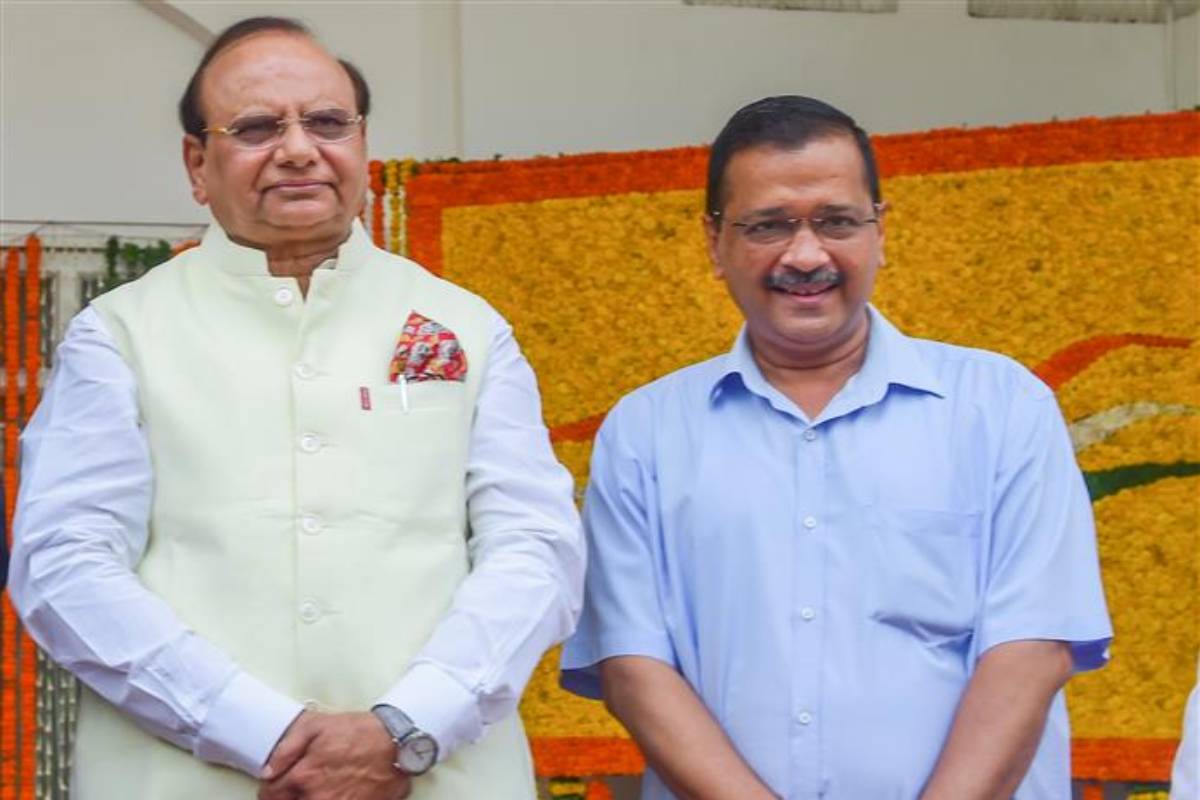In a big triumph for the Arvind Kejriwal Government, the Supreme Court on Thursday ruled that the Delhi government would have control over all services and officers serving under it barring those dealing with public order, police and land. Lt. Governor will no longer have an all-encompassing supervision over the administration of the National Capital.
The unanimous ruling by a five-judge constitution bench comprising Chief Justice D Y Chandrachud, Justice M R Shah, Justice Krishna Murari, Justice Hima Kohli and Justice Pamidighantam Sri Narasimha has brought curtains on bitter standoff between the Centre and the Kejriwal Government on the issue of control over the posting and transfer of senior ranking bureaucrats.
Advertisement
The government of the National Capital Territory of Delhi (NCTD) should have control over services except the ones excluded from its legislative domain, the constitution bench ruled.
Having cleared the cloud over the control over services and holding that they are accountable to the elected government in NCTD, Chief Justice Chandrachud pronouncing the judgment which said, “Democratically elected governments should have control over its officers. If a democratically elected govt is not allowed to control its officers and hold them to account then its responsibility towards… the public is diluted…”
Making it abundantly clear that officers serving in the Delhi government were accountable to the elected government, the judgment said, “The principle of collective responsibility extends to the responsibility of officers, who in turn report to the ministers … A democratically elected government can perform, only when there is an awareness on the part of officers of the consequences which may ensue if they do not perform.”
The constitution bench further said, “If the officers feel that they are insulated from the control of the elected government which they are serving, then they become unaccountable or may not show commitment towards their performance.”
However, this control over the services would not extend to the senior babus dealing with land, law and order and police.
Having cleared the deck over the control of administrative services, the court in a yet another significant ruling said that the Lt. Governor shall be bound by the decision of NCTD over services apart from land, police and law and order.
However, clarifying that Lt. governor shall exercise administrative powers as entrusted by the president, the constitution bench said that Lt. Governor’s executive administration can only extend to matters which fall outside the domain of the legislative assembly.
The bench reiterated that LG’s administrative power is limited to the powers entrusted by the president and the same cannot mean to include the whole of administration over the NCTD. “Otherwise, the purpose of having a separate elected body in Delhi will be rendered futile”, the court said.
Stating at the outset of the judgment that Delhi is part of an “asymmetric federal structure”, the bench said, “Federalism forms a part of basic structure. Federalism protects diverse interests and accommodates diverse needs. There is a dual polity in Delhi. One is the national government and one is a regional federal unit. These are elected by dual processes and there is dual manifestation of public will.”
While the NCTD is not a full-fledged state, it is not a state under the first schedule, yet it is empowered to legislate on certain matters. The Union government also has enough powers to protect its own interests, the constitution bench said.
But the Union government cannot take over the governance of the NCTD, the bench clarified in an apparent rejection of the Centre’s argument that Delhi was a Union Territory – an extension of the Centre and thus does not have a personality of a State or independent of the Centre.











